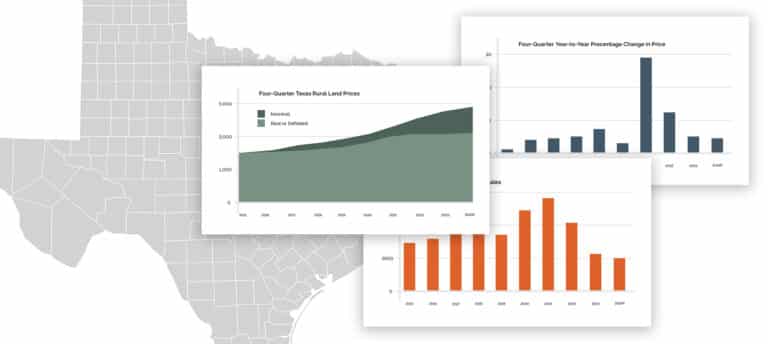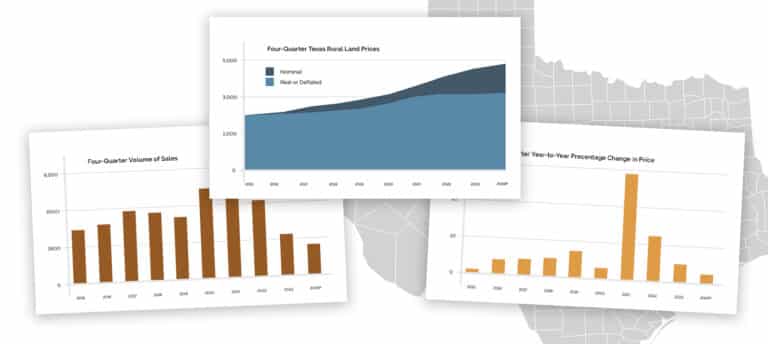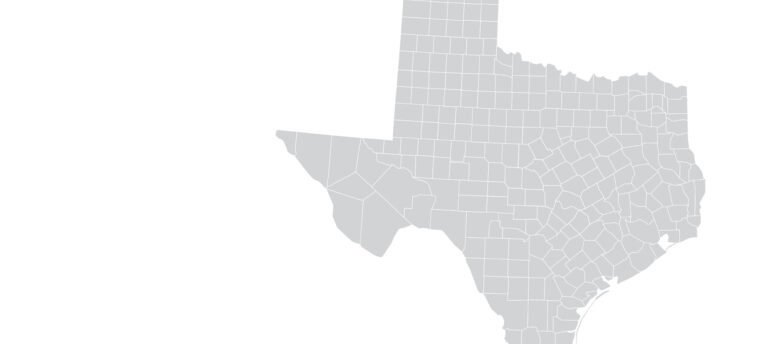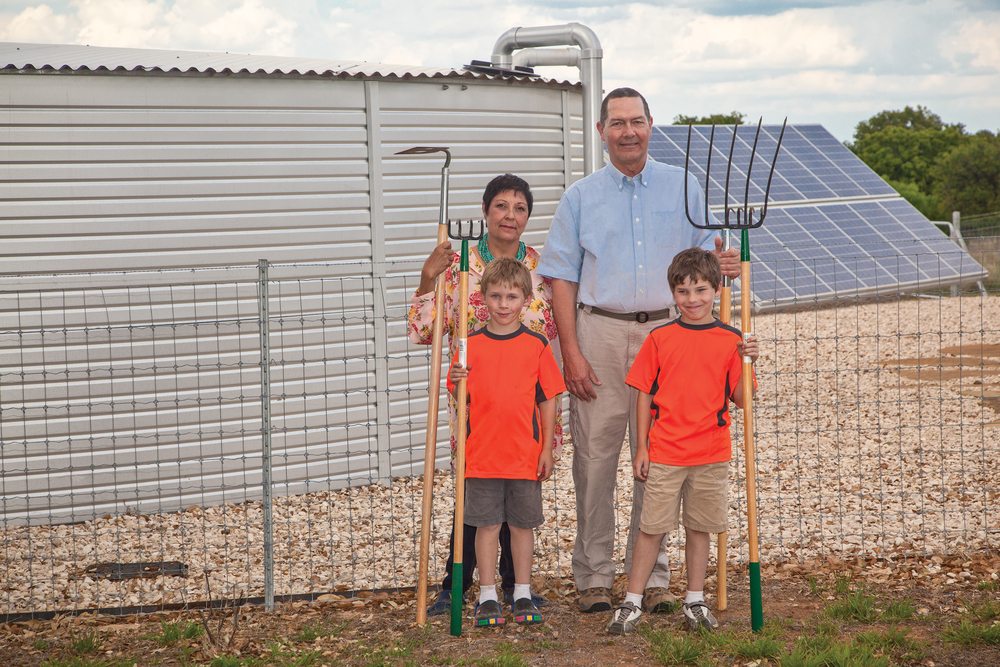
Interview by Courtney Donnell
I think that owning land does something for the human spirit that nothing else can do. It is sacred. It is life. Therefore, it is totally unique and powerful. Owning land is the only REAL estate. So, to me, there can be no more REAL manifestation than that.
How did you get into the ranch brokering business?
After graduating from Texas A&M, I was going to go to law school at St. Mary’s in San Antonio. Simultaneously, both of my parents, recently divorced, got their real estate licenses, dad in New Mexico, mother in Canyon Lake. My dad was kind of a land trader and ranch broker all along, and my mom ranched in Karnes County in the 70s. My family has a history in the land and livestock business. I was living in Austin at the time and there was a young company just in the infantile stages of being born, called Brent-Middlebrook Properties. They were looking for energetic, you fresh-out-of-college faces to form their sales team. They were in the land business, handling, exclusively, many of the properties controlled by the high-powered Barnes/Connally partnership, which was former Governor John Connally and Lieutenant Governor Ben Barnes, which included several large land developments around Austin. That was my introduction to the hardcore land business.
Was real estate an immediate fit?
Yes; and no. During my time there, we attempted to develop several, very environmentally sensitive sites near Austin. We were not successful! In fact, one site was what I would call “Ground Zero” for the formation of the environmental movement in Austin. Several environmental groups spawned from the opposition to development in the Barton Creek watershed. Through those processes, I got to see how developers operated and what a brutal process it is; and what an insensitive process it can be to the land. From that exposure, I pretty much decided I did not want to participate in the marketing of developments. I wanted to participate in the marketing of ranches that were not going to be sold to developers for high density residential subdivisions.
So, you decided to branch out on your own?
I was with that office for about three years, and at that time our whole team just kind of broke apart and went out on our own; and oddly enough, most ended up being successful on our own.
My first wife and I lived in a two-bedroom, two-bath condominium off of Manchaca, in south Austin. The second bedroom was my office; and that is how I started my company. I called myself Central and South Texas Farms and Ranches; and I got after it! I worked seven days and 90 hours a week, with a goal of creating a mental map of my Central Texas territory with all roads, major ranches and major waterways etched in my memory banks.
Do you remember the first ranch deal you worked on?
The first one I ever sold happened the first week I was in the business. It was a For-Sale-by-Owner that had been advertised in the Austin paper. I called on the number. I went and got a “handshake,” open listing from the old man that owned it; and low and behold, just a few days later we had some people from Houston call looking for something out in that area. I took him out there and sold him a hundred acres, near Lake Travis, on Bee Creek, for I think, it was $2,000 an acre. That was a big sale in 1981 for a recently-starving college student.
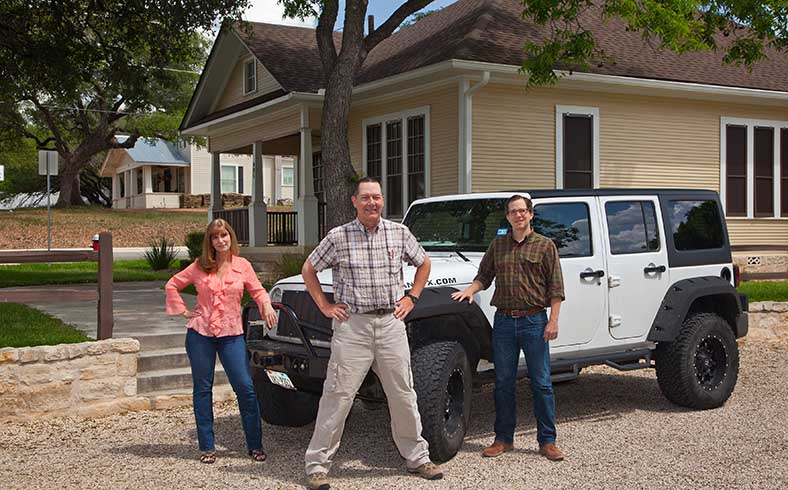
What is the best or most interesting deal you have worked on?
I would have to say, the best deal I have worked on was the Browning Ranch deal, which I had actually bought myself. I was going to create a conservation subdivision on it. The Browning Ranch is between Driftwood and Austin on Onion Creek. It was about 783 acres; I divided it up into six tracts. Each tract had creek frontage and an elevated home site. It would be restricted from any further development, just a perfect, conservation subdivision. Then, an old, well-known friend of mine and prominent Austin-area real estate executive, got in contact with me when he found out what I was doing; and through his representative, asked if he could have first pick of the tracts. He is married to another old friend of mine, so of course, I said, “Yes.” They came out and looked at it. A day or so later, I got the call, “They couldn’t decide which one they wanted. So, they were going to buy them all.” They have since added on about 1,000 more acres, some under Conservation Easement, to create quite an “island” of undeveloped land, in a rapidly developing area.
What is a conservation subdivision?
A conservation subdivision creates subdivided units that are, in my opinion, still viably sized units for agricultural and/or wildlife management in a given area. In Hays County, around Dripping Springs, that might be 75 acres. In Edwards County, around Rocksprings, that might be 1,000 acres. In Val Verde County, around Langtry, that might be 2,500 acres. The less intense the agricultural activity or wildlife activity can be, the larger the unit we are going to create. And, we are going to restrict it against small tract subdivision and extractive activities forever.
Forever is a really long time, isn’t it a tough thing to restrict?
Well, it is; and we still don’t know how the courts are going to stand behind these federally-endorsed easements, but we will see. All we can do is hope for the best, and rely on our system of justice to prevail. There is ongoing legal activity, stay tuned.
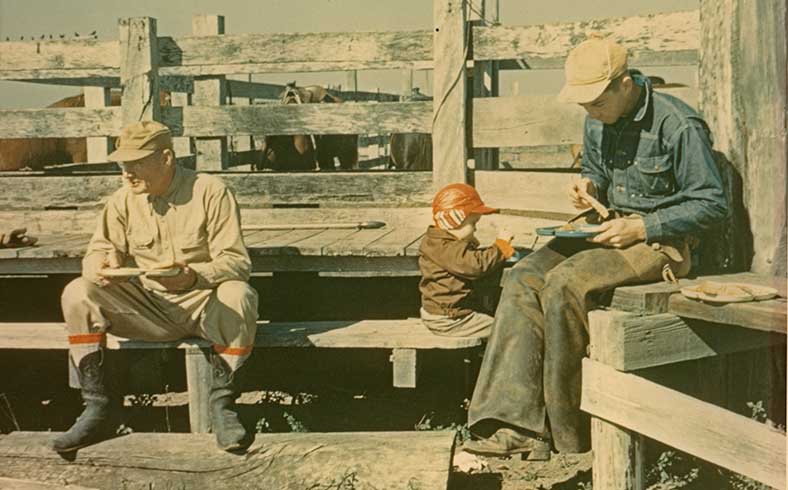
What is a conservation easement?
It is a set of restrictions that are placed on a property, either donated or sold to a conservation entity which results in some limitations on what one can do with their land. Essentially, it is giving up property rights for some sort of financial compensation. If you donate the easement, then you get a tax credit on your tax return. If you are selling the easement to a conservation program, then you are just getting cash money for it. Either way, you are diminishing your property rights for a financial reward.
Some of the private property rights people think that the phrase “conservation easement,” is like using foul language. But, the fact of the matter is, that conservation easements are voluntary, the land owner gets to craft their own terms. The stricter the easement, usually the more the financial benefit. If they don’t like the terms or the financial outcome, then they don’t have to do it. Also, they often benefit when their neighbors do it, as perhaps the biggest fear of ranch buyers is what can happen worst-case on the neighboring land.
What do you see as the major factor affecting land values?
I view the biggest threat to private land owners and land value as government intrusion and the acquisition of property rights without adequately compensating the land owner. An example of that is the condemnation of an electric line running through a ranch. Those public project right-of-ways are secured by eminent domain now. They pay people pennies on the dollar for the value of their land for that right in those cases, and often end up entangled in court, where the government-backed entity almost always wins.
What is the strangest experience you have had while showing a ranch?
Unfortunately, I won’t be able to let you publish the actual “strangest,” story, but the second strangest happened not too long ago. Me, and a CEO of an Austin corporation were looking at Pedernales Springs, in Blanco County. On the property, there is a sinkhole with a cave on it. We walked back and found the sinkhole and as we approached, a buzzard flew out of it, which is not unusual. Buzzards often seek refuge in caves. So, we climbed down in there and went over by where the cave opening was, and there was this big egg; and the egg was moving. So, we just stood there and watched. The egg started to move a bit more. The egg started to crack. Out came a little, baby buzzard. Carrion—watch out!
What have you learned is the most important aspect of selling large properties?
Patience and the steel ironed will to be a stand up broker and consultant all the way down the line, from start to finish, with favorable client outcome the dominant factor. Play it right down the middle, 100 percent fair, the right way, 100 percent of the time, providing consistent creative input as needed.
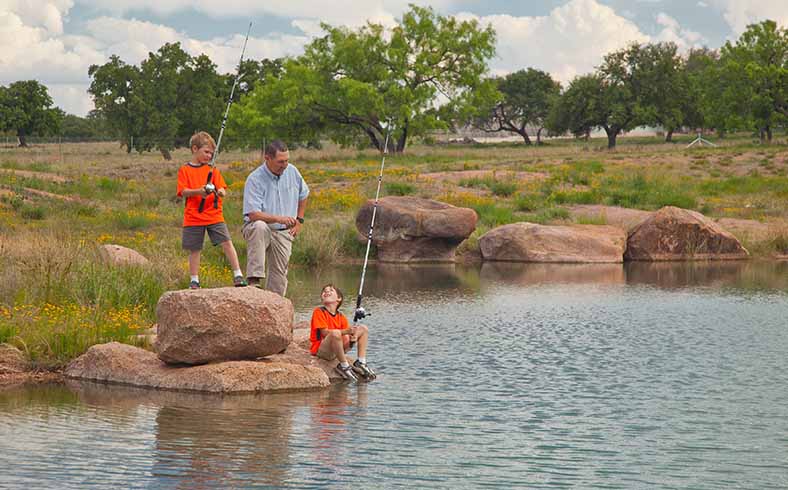
Where do you think you obtained such an admirable work ethic?
My mom was a marketing genius. She worked very hard. She was a female pioneer in the business world. She worked on Madison Avenue in the 1940s, while working on her Master’s Degree in Journalism from Columbia. She was doing full color brochures in the late 1950s. She owned an advertising agency that serviced agricultural and horse racing accounts, and was a pioneering female turf journalist. She always taught me, that if you work hard and you work the right way, good things will happen to you. And, that is the mantra I have lived by my whole life.
How has the industry changed over the years?
I guess the main thing is the media aspect of it. In the last decade or so, there has been just a lot more media opportunities for ranch brokers, in both print and electronic media. The print advertising segment has become much more sophisticated and competitive. The electronic segment is the wild, wild west. I think a few brokers have really picked up on that and taken advantage of it. I think those that have embraced the marketing media, are those who will remain successful. I hope to be one of those.
Who is your customer today?
Land owners! My 100 percent philosophy is that the buyers are not the people sitting in big buildings in Austin, San Antonio and Dallas with these big stacks of cash in front of them, scratching their heads and thinking they might want to buy a ranch. I believe that the buyers are the people that already own the ranches. So, that is the approach I take in my marketing. I am looking for people who already own ranches, already know how to buy and close a deal, who know how to manage the deal, who know how to handle the total package. Because, when it comes down to the nuts and bolts of owning a ranch it isn’t just about being able to afford one.
What do you think is the greatest benefit of owning land?
Well, they don’t call it “Real Estate,” for nothing. It is the only real thing. All other real things come from land. It is the ultimate product, made by the ultimate maker. I regard it as a privilege to be a purveyor of it, and an owner of it.
What do you do on your day off?
I don’t have many days off.
What I do with any free time I do have, is coach and play with my kids, manage the farm we live on, and our recreational hideout. I have twin eight-year-old boys that are my everythings, and they are getting a full dose of sports and the outdoors.
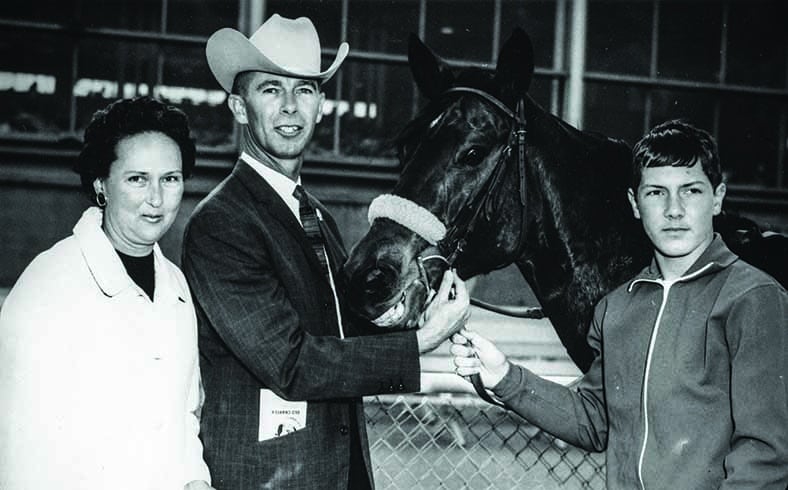
If you had to pick another career…. any career… What would it be?
I’d probably be a coach. I like being in charge, love all sports and I really enjoy working with youth.
What kind of a coach?
A youth coach. I’d coach all sports. I was an all-sports athlete and had great coaches in my life, a couple of whom provided significant influence.
Environmentally Sensible Land Brokerage is at the core of your business plan. How does that carry over into your personal life?
We live on a sustainable farm. It is all solar powered and rain water collection with all the bells and whistles. My wife Patricia manages the garden, which is being planted as we speak.
Is it fully sustainable?
Not quite yet. It will be in 3–4 months. I mean where we won’t need any help in event of grid failure. We live on 141 acres south of Mason, we have 15 black cows, two solar water fed lakes, full of sustainable breeding fish populations, a garden, an orchard; it’s quite a place.
This interview appeared in the summer 2013 issue of TEXAS LAND magazine. Click here to read past issues of TEXAS LAND and LAND magazines, plus to become a subscriber!
